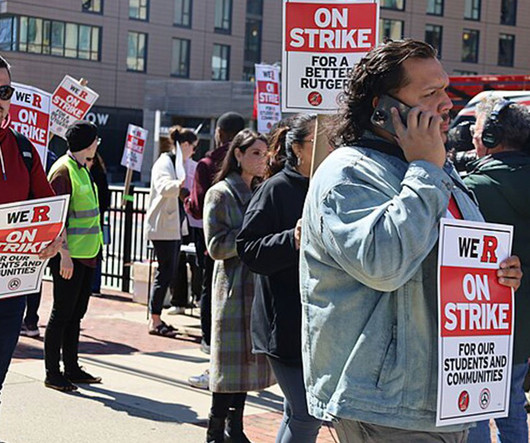Can Labor Save Higher Education as a Public Good?
NonProfit Quarterly
FEBRUARY 12, 2025
Image Credit: SeichanGant on Wikimedia Back in 2020, higher education faced multiple challengesincluding student debt, administrative bloat, and the spread of contingency (also known as adjunct labor) in faculty hiring. Five years later, the challenges facing higher education are as significant but different.












Let's personalize your content